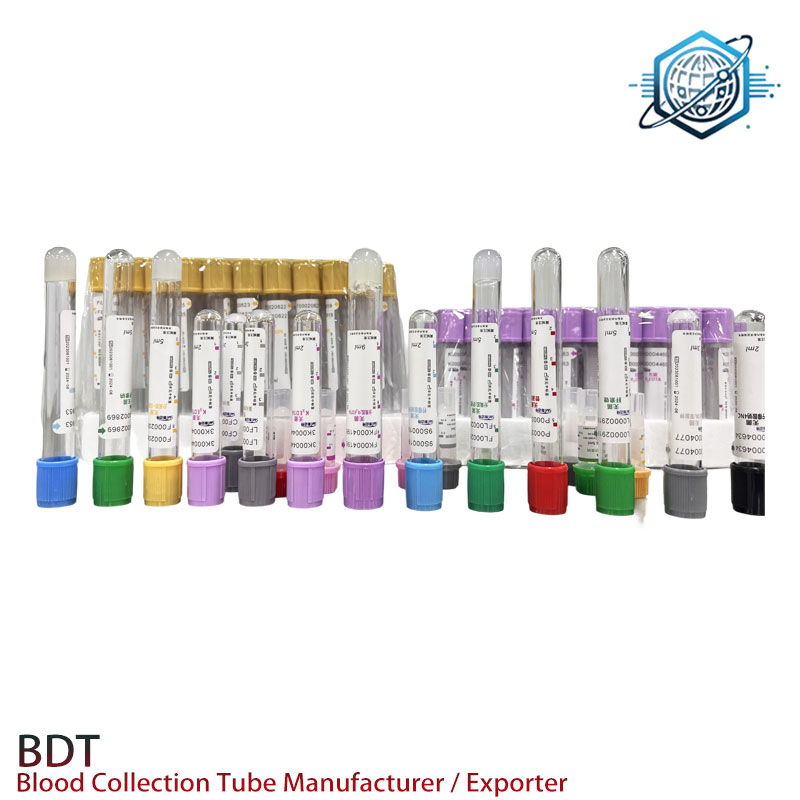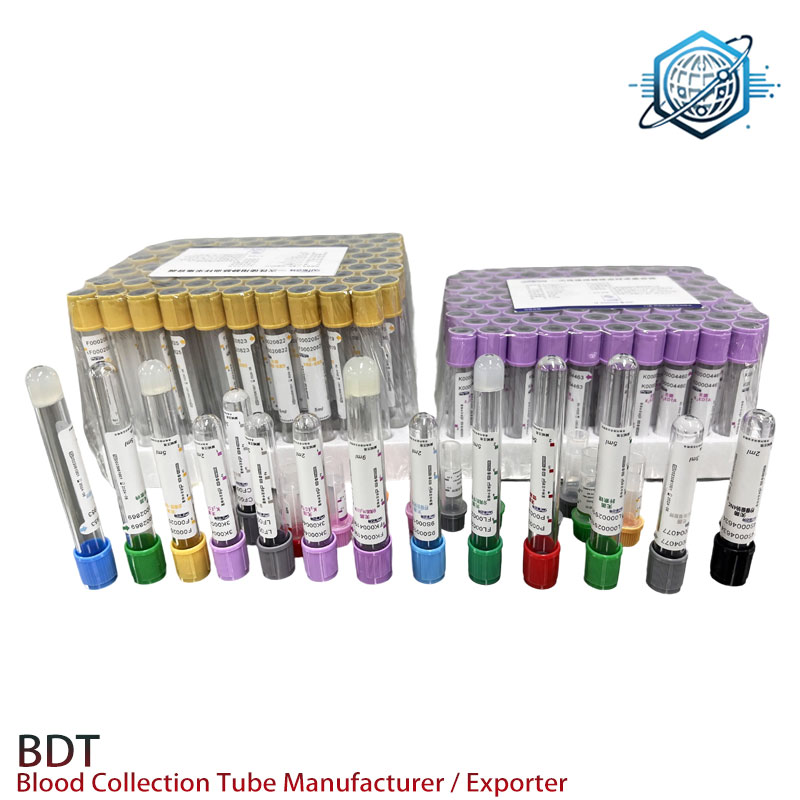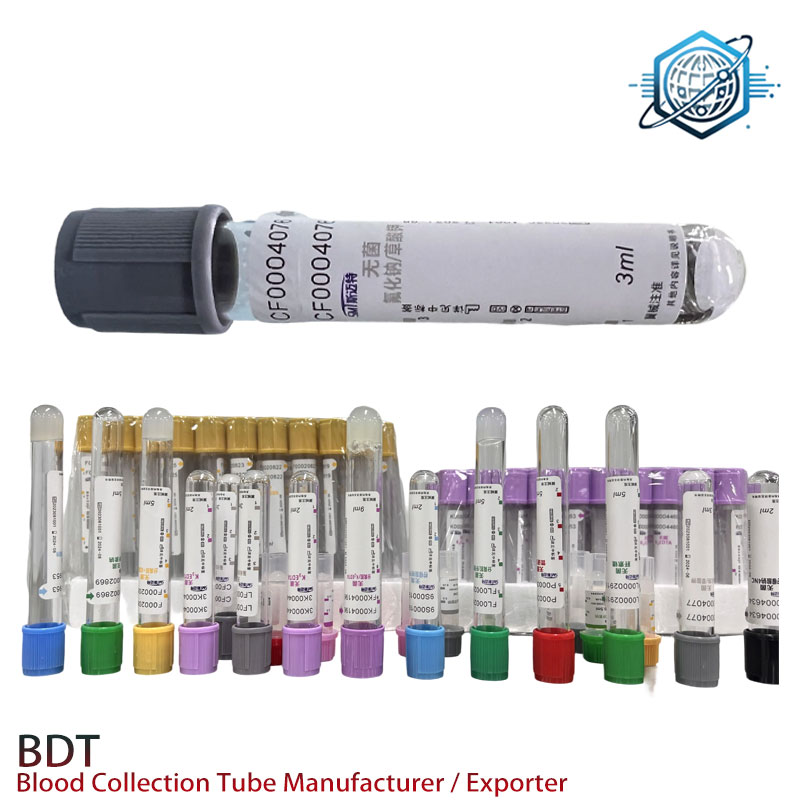Jul . 22, 2025 05:01 Back to list
Affordable K3 EDTA Tube Price | Blood Collection Tubes
Introduction to K3 EDTA Blood Collection Tubes
K3 EDTA tubes represent an essential component in contemporary hematology and blood collection systems. As a tripotassium salt of ethylenediaminetetraacetic acid, K3 EDTA effectively prevents blood coagulation by chelating calcium ions required for the coagulation cascade. The k3 edta tube price has become a significant consideration for healthcare institutions globally as the demand for reliable diagnostic tools increases. These tubes are widely utilized for complete blood counts (CBC), molecular diagnostics, and various specialized hematological tests that require anticoagulated whole blood. EDTA K3 blood collection tubes offer superior performance for maintaining cellular morphology and preventing platelet clumping compared to alternative anticoagulants.
Understanding the market dynamics affecting k3 edta tube price requires examination of multiple factors including raw material costs, manufacturing processes, quality certifications, and distribution networks. The global medical consumables market, valued at $300 billion in 2023 (Research and Markets), continues to grow at 6.8% CAGR, with K3 EDTA tubes constituting an essential segment of this expanding market. As healthcare systems worldwide implement standardized testing protocols, the edta k3 blood collection tubes market has witnessed consistent growth, particularly accelerated by the COVID-19 pandemic which highlighted the critical need for reliable diagnostic tools.



BDT Heating Pad Co., Ltd: Leading EDTA K3 Tube Manufacturer
As an ISO 13485 certified manufacturer, Shijiazhuang BDT Heating Pad Co.,Ltd. offers premium quality EDTA K3 tubes with custom branding options. Our state-of-the-art facility in Hebei Province, China, utilizes advanced automation technology to produce reliable blood collection systems that meet international standards, including CE certification. The competitive k3 edta tube price we offer reflects our commitment to making high-quality diagnostic tools accessible worldwide.
Our flagship product, the EDTAK3 Tube, features consistent spray-coated anticoagulant for uniform mixing, break-resistant glass, and certified safety caps to protect healthcare workers. With OEM services including private labeling and brand customization options, we partner with laboratories, hospitals, and distributors globally to deliver tailored blood collection solutions. The precise k3 edta tube price structure provides excellent value while maintaining superior anticoagulation performance compared to alternatives.
Request K3 EDTA Tube CustomizationComprehensive K3 EDTA Tube Price Analysis
The current k3 edta tube price landscape is influenced by several key factors. Raw material costs, including medical-grade PET plastic or glass, rubber stoppers, and tripotassium EDTA constitute approximately 45% of the manufacturing expenses. Fluctuations in crude oil prices significantly impact plastic components, while recent global supply chain disruptions have increased shipping costs by 20-30% compared to pre-pandemic levels. Volume purchasing remains a critical determinant of final price, with bulk orders of 10,000+ units typically offering 15-30% savings compared to small quantity purchases. Industry analysis shows average wholesale prices ranging from $0.08 to $0.20 per unit depending on quality specifications and order volume.
| Volume (Units) | Glass Tube Price (USD) | Plastic Tube Price (USD) | Average Industry Price | BDT Custom Price |
|---|---|---|---|---|
| 100-500 | $0.22 - $0.28 | $0.18 - $0.23 | $0.23 | $0.20 |
| 501-2,000 | $0.19 - $0.24 | $0.15 - $0.20 | $0.19 | $0.17 |
| 2,001-10,000 | $0.16 - $0.20 | $0.12 - $0.17 | $0.16 | $0.13 |
| 10,000+ | $0.12 - $0.17 | $0.09 - $0.14 | $0.13 | $0.10 |
Our competitive k3 edta tube price strategy at BDT Heating Pad Co., Ltd. provides significant advantages for bulk purchasers. Through vertical integration and manufacturing efficiencies, we've maintained stable pricing despite market fluctuations. The k3edta vacutainer products undergo rigorous quality control with lot traceability from raw materials to finished goods. Recent cost-benefit analyses demonstrate that higher initial quality investment in edta k3 blood collection tubes reduces long-term expenses by minimizing sample recollection costs and equipment maintenance.
Technical Specifications and Performance Metrics
EDTA K3 tubes must meet strict technical requirements to ensure diagnostic accuracy. The international standard ISO 6710:2017 specifies requirements for single-use container111s for venous blood collection, including tube dimensions, fill volume tolerances (±10%), and anticoagulant concentration. Optimal EDTA concentration ranges from 1.5-2.2 mg/mL blood to prevent clotting while avoiding cellular distortion. Our K3 EDTA tubes feature a precisely controlled additive spray-coating process that delivers 3.6 ± 0.3 mg of tripotassium EDTA per 2 mL tube. Research published in the Journal of Clinical Pathology indicates this concentration provides optimal platelet morphology preservation for up to 4 hours.
Advanced manufacturing at our facility ensures uniform wall thickness with variations ≤ 0.05 mm and closure puncture integrity exceeding 30% higher than industry standards. These precision engineering parameters directly impact the k3 edta tube price premium associated with diagnostic-grade products. Validation studies show our K3 EDTA tubes consistently deliver MCV stability within ±0.3 fL over 4 hours storage at 4-25°C, satisfying requirements for automated hematology analyzers. The slightly higher k3 edta tube price for glass variants is justified by reduced gas permeability and enhanced stability for specialized tests requiring extended pre-analytical stability.
K3 EDTA Tube Market Pricing Trends (2018-2023)
Global K3 EDTA Tube Market Share by Region
Applications and Clinical Protocols
Understanding proper k3 edta tube use is fundamental to obtaining reliable laboratory results. EDTA K3 tubes are designated for whole blood hematology testing, primarily complete blood counts and erythrocyte sedimentation rates (ESR) when combined with special additives. The Clinical and Laboratory Standards Institute (CLSI) H3-A6 guideline specifies collection protocol: correct filling to ±10% of stated volume, 8-10 gentle tube inversions immediately after collection, and processing within defined time limits. The relatively lower k3 edta tube price compared to specialized collection tubes makes them ideal for routine screening.
In molecular diagnostics applications, K3 EDTA tubes preserve DNA integrity through effective inhibition of DNases. This application has grown significantly since the COVID-19 pandemic, with the number of molecular tests performed annually increasing by 73% globally (WHO, 2023). The k3 edta blood test workflow integrates with automated DNA extraction systems, representing a cost-efficient solution despite the somewhat higher k3 edta tube price compared to alternatives like sodium citrate tubes. Newer applications include liquid biopsy tests for oncology, where standardized EDTA K3 tubes ensure consistent cell-free DNA yield from plasma preparations.
Professional FAQ: K3 EDTA Tubes Technical Specifications
Contact BDT Heating Pad Co., Ltd.
For inquiries regarding custom manufacturing, OEM services, or wholesale pricing for K3 EDTA tubes, please contact our expert team:
- Company: Shijiazhuang BDT Heating Pad Co.,Ltd.
- Email: bdttonyjiao@hotmail.com
- Phone: +86 15081115902
- Address: 9-1-701 TonfuTown Shijiahzuang City Hebei Province China
- Product Website: EDTAK3 Blood Collection Tubes
- Main Website: www.bdtheatingpads.com
References and Industry Resources
- CLSI Standard H03-A6 - Procedures for the Collection of Diagnostic Blood Specimens by Venipuncture (Published 2022)
- Clinical validation of K3 EDTA anticoagulated blood for platelet function analysis - Journal of Clinical Pathology (2020)
- Preanalytical Errors in Specimen Collection Requirements - Centers for Disease Control and Prevention
- WHO Guidelines on Drawing Blood: Best Practices in Phlebotomy (2020)
- Blood Collection Tubes Market - Global Forecast to 2027 - Research and Markets
- Effect of Time and Temperature on Cellular Morphology in EDTA Tubes - Laboratory Medicine (2019)
- ISO 6710:2017 Single-use container111s for human venous blood specimen collection
- FDA Guidance on Blood Collection Tubes Containing Anticoagulants (2022)
-
High-Quality Lithium Heparin Tube for Accurate Blood Collection
NewsJul.25,2025 -
Capillary Collection Tubes for Accurate Blood Sampling and Testing
NewsJul.24,2025 -
High-Quality Sodium EDTA Tube for Accurate Blood Collection
NewsJul.23,2025 -
High-Quality Serum Separator with Clot Activator for Accurate Testing
NewsJul.22,2025 -
Clot Activator Blood Tubes: Fast Serum Preparation
NewsJul.21,2025














